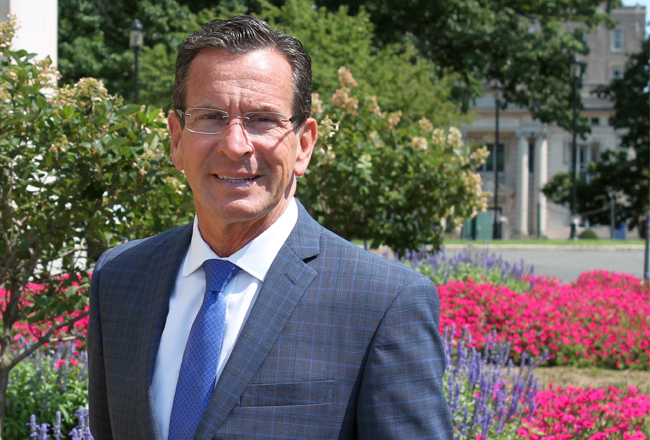Gov. Dannel Malloy today released his fourth balanced budget proposal for the fiscal 2018-19 biennium, which he described as “a lean, no-frills, no-nonsense” effort.

Built off the administration”™s last compromise budget, Malloy”™s latest proposal eliminates numerous tax increases, cuts additional spending and focuses on structural changes and language that the governor said is necessary to implement the biennial budget.
“Our goals were simple in putting this plan together: eliminate unpopular tax increases, incorporate ideas from both parties, and shrink the budget and its accompanying legislation down to their essential parts,” Malloy said. “It is my sincere hope this document will aid the General Assembly in passing a budget that I can sign into law.”
The latest proposal includes:
- Maintaining revenue changes where there was general consensus while eliminating other revenue proposals, including new taxes on second homes, cellphone surcharges, ride-sharing fees and daily fantasy sports.
- Cutting spending further via an additional $150 million in reductions over two years, bringing the total spending cuts to more than $144 million and the total general fund spending to $18.38 billion in fiscal year 2018.
- Stripping more than 130 pages of implementation language from House Bill 7501, as amended by Senate Amendment A. This was done by paring down implementation sections into two categories: items that provide structural relief for the state and municipalities, and language that is necessary to actually implement the biennial budget. In doing so, it removes language for a new transportation authority, language on “raise the age” policy, and more.
- Including an updated formula that maintains focus on school districts most in need of assistance, but which phases in more gradually in order to ease the impact on Connecticut municipalities. The budget also contains municipal mandate relief for towns and cities, as well as the Municipal Accountability Review Board to ensure that aid to Hartford and other struggling municipalities is paired with oversight and accountability.
“As with every budget I have put forth, I remain open to making changes and improvements to this document,” Malloy said. “No budget is perfect, and none of us have the market cornered on good ideas.
“At the same time, we must keep in mind that time is of the essence if we want to avoid the most difficult cuts to towns, hospitals, and nonprofits,” he said. “Simply put, we need to act now on behalf of our constituents.”
“I thank the governor for sharing his ideas, which legislative leaders will review and consider as we continue budget negotiations,” said Senate Republican President Pro Tempore Len Fasano (R-North Haven) in response. “I welcome any and all ideas to the conversation and I appreciate the fact that Gov. Malloy has shared this proposal.
“That being said,” Fasano continued, “it is obvious that the governor”™s proposal, including his devastating cuts to certain core services and shifting of state expenses onto towns and cities, would not pass the legislature in its current form. Therefore, legislative leaders will continue our efforts to work on a bipartisan budget that can actually pass.”
Connecticut, which has been operating without a budget since July 1, faces a projected $3.5 billion deficit.






















